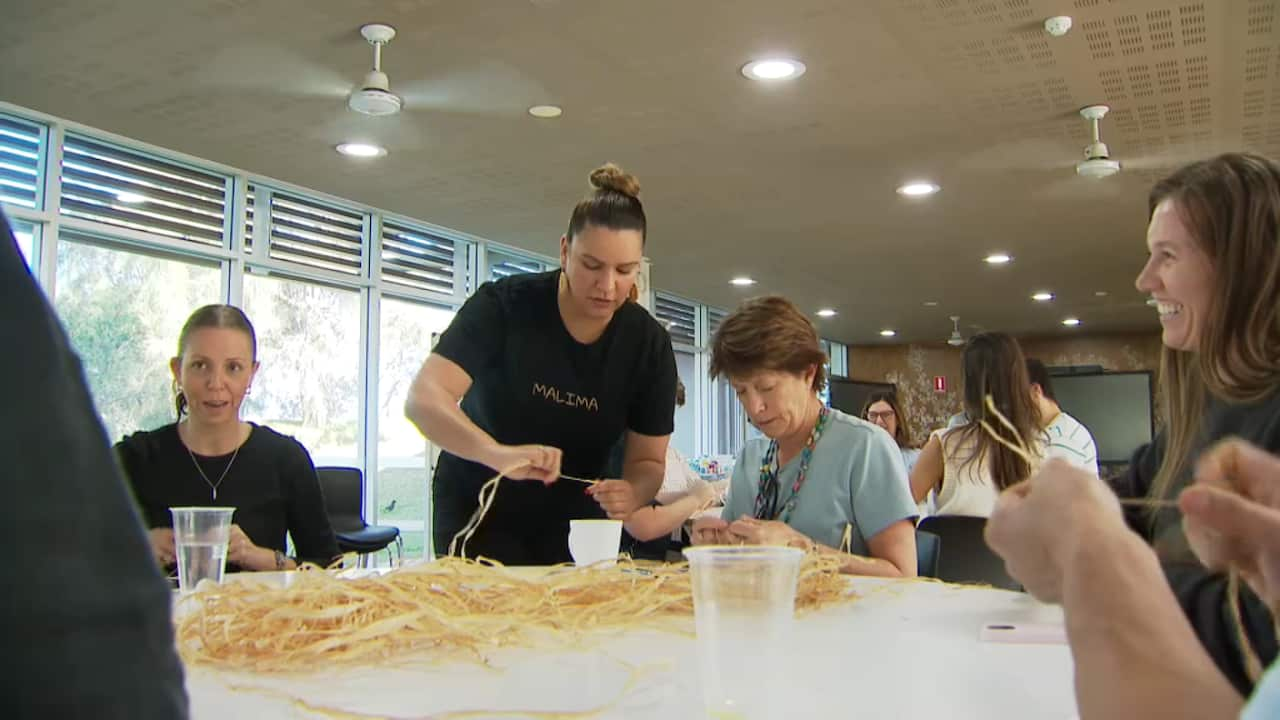Kodie Mason is the founder of Malima, a social enterprise which provides cultural education and Aboriginal weaving workshops.
Starting as a side hustle in 2019, it has since grown to employ many of Kodie’s relatives, including new mothers preparing to return full-time to the workforce, and provides pathways for younger generations.
But Kodie is humble in her pursuit, crediting those who came before her.
“I feel like now, I’m living in a time where we are allowed to be so open with our culture because it could have so easily been lost.
“Our Old People opened so many doors for me as a young person today,” said the Dharawal Ngarigo Dunghutti woman.
“I’m able to continue their fight, keep our culture strong … [while] also navigating mainstream systems; education, employment.”

In September, Kodie was recognised as Young Sydneysider of the Year for her small business and work as a Senior Policy Officer at the Aboriginal Education Consultative Group in New South Wales.
Eamon Waterford, CEO for the Committee of Sydney described Kodie as standing:
“At the intersection of tradition and transformation – honouring her ancestors while creating pathways for generations to come.”
Plants have a purpose

At a park in Sydney, Kodie is quick to point out the plant garinli, also known as lomandra.
Once harvested, dried and soaked, the grass is used to weave ropes for fishing lines or traps, baskets and even jewellery.
Within minutes, Kodie has woven the beginnings of a basket. The spiky and resilient shrub has other uses too.
“The bottom fleshy white section, you can actually chew on this and it’s full of water. So, really good if you’re dehydrated.
“This is also an important food plant. The seeds are actually a grain we use for making bread and cookies.”
This knowledge is also shared at a workshop at the Aboriginal Health and Medical Research Council in La Perouse, where Mason was raised.
Clare Mason, Kodie’s aunt and an employee at Malima, said she is often met with surprise when leading the weaving workshop.
“We’ve had quite a few questions where people are like, ‘Oh, I don’t want to do it, it’s for a woman’ and I’m like, ‘No, it’s actually for everybody – even the kids.'"
The Dharawal woman from the Gweagal clan said she has watched Kodie’s business expand.
“It’s been such a privilege to watch her grow in this space and I look forward to the next 10 years to come, because I feel like it’s just going to grow.”
‘We have a lot to share’

Kodie said she had to overcome operational challenges early, as the Covid-19 pandemic forced her new business to move online and send weaving packs via post.
Whether meeting virtually or face-to-face, the businesswoman said she notices "how little" people know about Aboriginal peoples and cultures.
“I think we have a lot to share and a lot of knowledge," she told NITV.
"It would be good for other people to learn about our culture, our traditions.”
That includes challenging the narrative of what a First Nations business looks like, particularly in “urban spaces”, said Kodie.
Her Aunt Clare described work at Malima as special and significant, “because it our connection to our ancestors, it’s our connection to Country and it’s our connection to … one another.”
It’s this pride in culture, that Kodie hopes to pass down to the next generation.
“I feel like now as a mother, I really want my son to grow up strong in his culture, really connected … because that’s how I grew up.
“Learning how to weave from a young age and learning all about the plants.”

